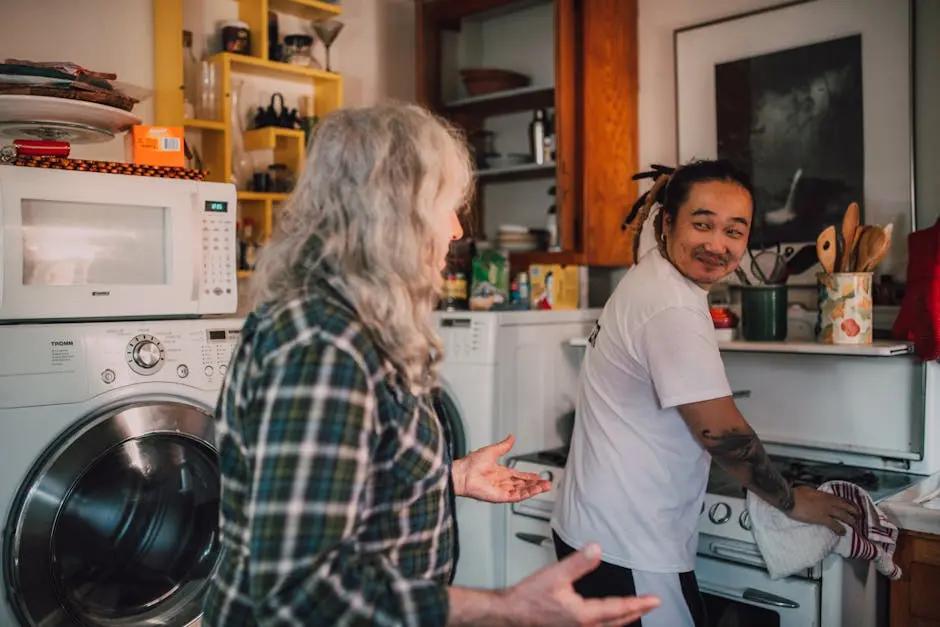Finding the right companion for seniors is essential for their well-being and happiness. In Fairfax County, sharing and caring companions can make a significant difference in the lives of older adults, helping them feel connected and supported. This blog will explore the key qualities that make these companions truly valuable for our senior community.
1. Empathy and Understanding
Empathy is the heart of a meaningful relationship, especially for seniors. When companions demonstrate empathy, they can truly connect with seniors and understand their feelings and experiences. This understanding can lead to a more supportive interaction, allowing seniors to feel valued and heard. For instance, a sharing and caring companion who invests time in listening to a senior’s stories can create a comforting atmosphere, making them feel less isolated and more appreciated.
Moreover, understanding the unique challenges that seniors face, whether due to health issues or social isolation, allows companions to be more attuned to their needs. This sensitivity not only fosters a sense of security but also enhances the quality of companionship. It paves the way for meaningful conversations and deeper connections, which are essential in improving the overall well-being of older adults.
2. Patience and Calmness
Patience is another essential quality for sharing and caring companions. Seniors often require more time to express themselves or complete daily tasks, and a patient companion can make all the difference. This calm demeanor helps reduce any frustration that can arise from misunderstandings or the slower pace at which seniors may operate. A calm presence can soothe anxieties and create a peaceful environment that promotes relaxation and well-being.
In addition, companions with patience can better manage challenging situations that may arise due to health-related issues or emotional distress. Their tranquil approach reassures seniors and encourages them to maintain independence while having support. This creates a stronger bond that not only helps build trust but also enhances the overall experience of companionship for seniors, making daily interactions more enjoyable.
3. Active Listening Skills
One of the most impactful qualities a sharing and caring companion can possess is active listening skills. This involves not just hearing what seniors say, but fully engaging with their words, emotions, and thoughts. When companions practice active listening, they convey to seniors that their feelings and opinions are important. This can have a significant emotional impact, as seniors may often feel overlooked in a fast-paced world.
Active listening also promotes a sense of community and belonging. By encouraging seniors to share their stories and experiences, companions foster an environment where meaningful conversations can thrive. This not only enriches the companion’s understanding of the senior’s life but also creates a supportive social network that greatly enhances the quality of life for older adults.
4. Engagement in Activities
Sharing and caring companions who actively engage seniors in activities can significantly enhance their daily lives. Whether it’s going for a walk, playing a game, or participating in a creative hobby, involving seniors in various activities helps keep them mentally and physically stimulated. These interactions not only provide joy but also promote a sense of purpose and accomplishment.
Furthermore, engaging in activities together can lead to bonding moments that create lasting memories. Companions can introduce new hobbies that pique a senior’s interest, breathing new life into their daily routines. This encouragement and motivation can be essential in reducing feelings of loneliness and boredom, transforming days into fulfilling experiences.
5. Trustworthiness and Reliability
Trustworthiness is a cornerstone of effective companionship. Seniors need to feel secure with their companions, knowing that they can rely on them for both emotional support and physical assistance. A trustworthy companion stands by their commitments, ensuring that seniors feel supported in their activities and daily routines. This reliability builds a solid foundation for a meaningful relationship.
In practice, this means showing up when promised and being there during difficult times. Companions who consistently demonstrate trustworthiness foster a safe space for seniors to express their thoughts and feelings without fear of judgment. It encourages open communication, ultimately creating a relationship grounded in respect and loyalty, which is invaluable for seniors seeking friendships.
6. Flexibility and Adaptability
Flexibility is crucial for sharing and caring companions as each senior has unique needs and preferences. The ability to adapt to varying situations and requirements is vital for creating a supportive environment. Whether it’s adjusting plans at the last minute or accommodating a senior’s changing moods, an adaptable companion makes it easier for seniors to feel comfortable and in control of their lives.
A companion who can seamlessly shift activities or plans according to the senior’s preferences ensures that each interaction is enjoyable and fulfilling. This is especially important given that seniors may have changes in health or energy levels. By being flexible, companions contribute to a sense of stability and reassurance, which can be particularly important during challenging times.
7. Positive Attitude and Encouragement
A positive attitude is infectious, and sharing and caring companions who exude optimism can uplift seniors’ spirits. This quality not only brightens the atmosphere but also encourages seniors to maintain a hopeful outlook on life. Companions who celebrate small victories and provide encouragement can inspire seniors to take on new challenges, ultimately improving their overall mental health.
Moreover, a companion’s positive encouragement can help combat feelings of discouragement or sadness. By fostering an environment of support and affirmation, they can motivate seniors to engage more actively with the world around them. This approach not only enhances the quality of life but also nurtures resilience, allowing seniors to face obstacles with a head held high.


